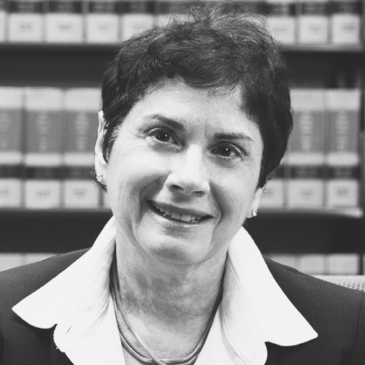Susan W. Brecher, Esq is the Director of HR Dispute Management and Resolution Certificate and Curriculum/Training Design at the Cornell ILR School’s Scheinman Institute. She is an employment practices attorney and expert in training and curriculum design for both online and classroom-based workshops. She has served as Director of Statewide Management Programs and provided oversight of EEO, Labor Relations, Human Resources, and Management Development programs. Susan has partnered with over 100 private, public, and non-profit organizations to develop and present customized training programs. She has a law degree from Case Western Reserve University.

Employee Relations and InvestigationsCornell Certificate Program
Overview and Courses
During complicated times, employee relations issues skyrocket. Managing these issues, with a process in place to mitigate further internal problems in a professional manner, can be challenging. Poor handling of internal investigations can result in legal and monetary damages, reputational harm to an organization, and a negative impact on employee morale.
In this certificate program, you will explore a framework for conducting effective employee relations (ER) conversations with employees and managers. When workplace complaints turn more serious, it is important you complete a thorough and fair internal investigation. This program will take you through the full investigation process, starting with conducting an interview. From there you will work on structuring and conducting the investigation. Finally, you will conclude and evaluate the investigation.
Throughout this program, you will learn and apply the frameworks, processes, and communication skills needed to help you develop effective ER management practices for conducting conversations and conducting internal investigations that will enhance the success of the organization’s mission through its employees.
The courses in this certificate program are required to be completed in the order that they appear.
Course list
Employee relations is an increasingly important role within the HR function. Maintaining positive employee relations helps boost morale, reduce conflict, and raise workforce productivity.
In this course, you will develop an understanding of how to best facilitate relationships between an organization and its employees, employees and their managers, and employees and other employees. You'll be introduced to the Effective Employee Relations Conversations framework, which enables HR professionals to conduct effective conversations with team members at all levels of the organization. Throughout the course, you'll have an opportunity to apply key components of this framework by working through a variety of practice activities.
Internal employee investigations are complex and require a step-by-step process. Following a proven process helps organizations ensure that a fair and thorough method is being used for determining whether there have been serious policy violations.
In this course, you will focus on the role and competencies required of internal investigators, be introduced to the components of the internal investigations process, and explore topics that impact the entire process. You will also have the opportunity to identify specific knowledge, skills, and insights you would like to transfer and apply to your role as an investigator.
The following course is required to be completed before taking this course:
- Conducting Effective Employee Relations Conversations
Conducting interviews — and conducting them effectively — is a critical step in the complex process of internal employee investigations.
In this course, you will focus on the common structure of intake and investigatory interviews, as well as note taking and communication skills for conducting interviews. The course will introduce a case study that focuses on conducting the intake interview.
The following courses are required to be completed before taking this course:
- Conducting Effective Employee Relations Conversations
- Internal Investigation Fundamentals
When investigating the complaint issues, it's important to have a defined method for gathering information during the internal investigation.
In this course, you will concentrate on investigating the issues, which includes planning, structuring, and conducting by actively gathering the information. The course will build on a case study that focuses on a continuous approach for acquiring sufficient information.
The following courses are required to be completed before taking this course:
- Conducting Effective Employee Relations Conversations
- Internal Investigation Fundamentals
- Conducting Internal Investigation Interviews
In order to effectively conclude an internal employee investigation, there are a number of critical steps that need to be followed.
In this course, you will focus on concluding the investigation, determining and implementing outcomes, and evaluating the process. The course will complete a case study that focuses on the final details related to closing an investigation.
The following courses are required to be completed before taking this course:
- Conducting Effective Employee Relations Conversations
- Internal Investigation Fundamentals
- Conducting Internal Investigation Interviews
- Investigating Internal Complaint Issues
How It Works
- View slide #1
- View slide #2
- View slide #3
- View slide #4
- View slide #5
- View slide #6
- View slide #7
- View slide #8
- View slide #9
Faculty Author
Key Course Takeaways
- Conduct day-to-day employee relations discussions and identify issues
- Develop interview skills
- Articulate how to structure and conduct an internal investigation
- Develop skills for reaching conclusions, implementing outcomes, and evaluating the investigation process

Download a Brochure
Not ready to enroll but want to learn more? Download the certificate brochure to review program details.
What You'll Earn
- Employee Relations and Investigations Certificate from Cornell ILR School
- 50 Professional Development Hours (5 CEUs)
- 50 Professional Development Credits (PDCs) toward SHRM-CP and SHRM-SCP recertification
- 50 Credit hours towards HRCI recertification
Who Should Enroll
- HR professionals
- Employee relations managers
- Generalists seeking to move into a specialized role

“eCornell puts you in control of your education entrepreneurship. It allows you to choose what you need to learn and how you need to learn it at the right time.”
Request Information Now by completing the form below.

Employee Relations and Investigations
| Select Payment Method | Cost |
|---|---|
| $3,900 | |

